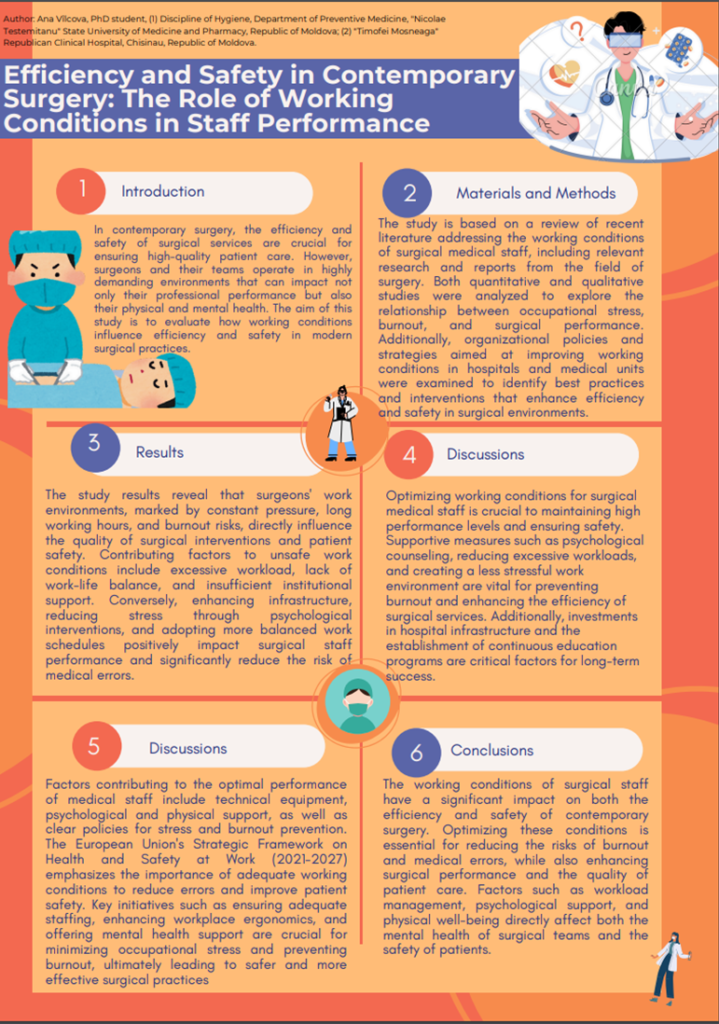Ana Vîlcova
Moldova
Efficiency and Safety in Contemporary Surgery: The Role of Working Conditions in Staff Performance
Author: Ana Vîlcova, PhD student, (1) Discipline of Hygiene, Department of Preventive Medicine, “Nicolae Testemitanu” State University of Medicine and Pharmacy, Republic of Moldova; (2) “Timofei Mosneaga” Republican Clinical Hospital, Chisinau, Republic of Moldova.
Abstract
Background
In contemporary surgery, the efficiency and safety of surgical services are crucial for ensuring high-quality patient care. However, surgeons and their teams operate in highly demanding environments that can impact not only their professional performance but also their physical and mental health. The aim of this study is to evaluate how working conditions influence efficiency and safety in modern surgical practices.
Methods
The study is based on a review of recent literature addressing the working conditions of surgical medical staff, including relevant research and reports from the field of surgery. Both quantitative and qualitative studies were analyzed to explore the relationship between occupational stress, burnout, and surgical performance. Additionally, organizational policies and strategies aimed at improving working conditions in hospitals and medical units were examined to identify best practices and interventions that enhance efficiency and safety in surgical environments.
Results
The study results reveal that surgeons’ work environments, marked by constant pressure, long working hours, and burnout risks, directly influence the quality of surgical interventions and patient safety. Contributing factors to unsafe work conditions include excessive workload, lack of work-life balance, and insufficient institutional support. Conversely, enhancing infrastructure, reducing stress through psychological interventions, and adopting more balanced work schedules positively impact surgical staff performance and significantly reduce the risk of medical errors.
Conclusions
The working conditions of surgical staff have a significant impact on both the efficiency and safety of contemporary surgery. Optimizing these conditions is essential for reducing the risks of burnout and medical errors, while also enhancing surgical performance and the quality of patient care. Factors such as workload management, psychological support, and physical well-being directly affect both the mental health of surgical teams and the safety of patients.


Leave A Comment